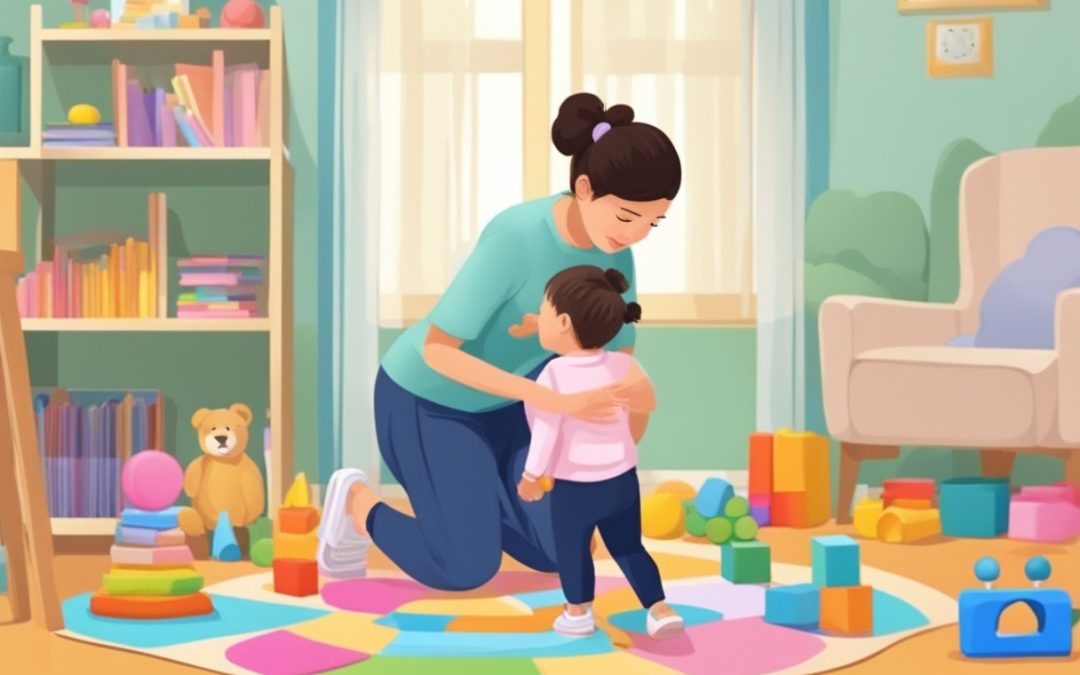When we notice that young children aren’t meeting developmental milestones, it’s natural for parents, caregivers, and educators to feel a mix of concern and determination. Developmental delays can range from minor temporary lags to more significant challenges in areas like speech, social skills, and motor abilities. Recognising these delays early on is crucial, as it lays the groundwork for supporting a child’s growth and learning potential.
Early intervention programs are designed to meet children where they are, utilising a tailored approach to foster their development. By intervening at an early age, we can provide the necessary tools and therapies that can significantly improve outcomes for children with developmental delays. The support they receive during these formative years is not just about overcoming obstacles; it is about equipping them with the resilience and skills to thrive in the long term.
Our role in recognising and addressing developmental delays cannot be understated. Getting involved at an early stage enables us to create an inclusive environment where every child has the chance to reach their full potential. Whether it’s through individualised therapy, family support, or community resources, we have the opportunity to make a profound difference in the lives of these young learners.
Identifying and Understanding Developmental Delays

Recognising developmental delays early in a child’s life is crucial for us to support their growth and development effectively.
Significance of Early Diagnosis
When we spot developmental delays early in a child’s life, the impact on their well-being and future potential can be profound. Diagnosis at this stage allows us to tailor early intervention strategies that are aligned with the child’s specific needs. For instance, identifying autism spectrum disorder (ASD) early can significantly alter the course of a child’s development through specialised support and therapy.
Conditions commonly associated with developmental delays include:
- Autism Spectrum Disorder (ASD)
- Cerebral Palsy (CP)
- Attention Deficit Hyperactivity Disorder (ADHD)
Comprehensive Assessments and Screenings
Comprehensive developmental assessments and screenings are powerful tools that help us understand a child’s unique developmental path. These detailed checks, often involving a range of developmental screening tools, are critical for unravelling the complexities of each child’s condition.
Developmental Screening assesses:
- Communication skills
- Motor skills
- Social skills
- Problem-solving abilities
Assessment Process usually involves:
- Parent interviews
- Observation of the child
- Standardised tests
- Feedback from childcare providers or teachers
Our role is to interpret these results carefully and consider them in context with the child’s history to ensure a precise diagnosis. A correct diagnosis is the bedrock upon which we can build a support structure tailored to each child’s individual strengths and challenges.
Approaching Early Intervention
We recognise that each child’s journey is unique, and early intervention is crucial in nurturing their developmental progress. The focus here is how we can approach early intervention effectively, ensuring that treatment and therapy are both beneficial and empathetic.
Tailoring Therapeutic Strategies
For our little ones facing developmental delays, it’s vital we design early intervention that’s as individual as they are. We look at key therapies like physical therapy, which helps develop motor skills, occupational therapy, which enhances day-to-day functions, and speech therapy, which supports communication skills. Here’s how we can tailor these therapies for maximum impact:
- Physical Therapy: Gauge the child’s specific needs and set realistic milestones, often implemented through activities such as structured play.
- Occupational Therapy: Focus on practical life skills, adapting tasks and environments to the child’s capabilities, making everyday tasks achievable.
- Speech Therapy: Identify communication challenges and use appropriate techniques, such as picture exchange or speech-generating devices, to enhance language development.
Each therapeutic approach is selected based on detailed assessments and is continuously adapted to align with the child’s evolving abilities and needs.
Embracing Family-Centred Care
Our approach to early childhood intervention thrives on family support. We understand that families are the constant in the child’s life and central to their success. We can’t separate the child’s needs from the family’s wellbeing, so here’s how our care envelops the entire family:
- Education: Providing clear, accessible information about their child’s condition and progress.
- Resources: Supplying tools and resources that families can use at home.
- Support Networks: Connecting families with other parents and support groups, creating a community of shared experiences and practical aid.
- Emotional Support: Recognising the emotional journey for families, we offer counselling and strategies to maintain family resilience.
These methods fortify the family unit, enabling them to be powerful advocates and active participants in their child’s early intervention.
Supporting Development Through Multifaceted Means
We understand the critical role that a supportive environment and proper nutrition play in the development of a child, especially when addressing developmental delays. Our approach focuses on creating a strong foundation in both cognitive and language skills. Let’s explore the significance of each area.
The Role of Environment and Nutrition
A supportive and enriching environment paired with balanced nutrition is fundamental for healthy development. Children benefit from exposure to diverse stimuli that encourage exploration and learning. This includes access to safe play areas and educational toys that challenge their developing senses and motor skills.
Nutrition is equally pivotal; proper intake of vitamins and minerals supports brain development and overall health. Iron, iodine, and omega-3 fatty acids are particularly important for cognitive functions and brain health.
Enhancing Cognitive and Language Skills
Cognitive and language skills are cornerstones of a child’s development. We focus on interactive activities to boost cognitive development such as:
- Problem-solving games: These games foster analytical thinking and adaptability.
- Memory exercises: Simple matching games can enhance short-term and working memory.
Language development is encouraged through:
- Reading aloud: This exposes the child to new vocabulary and sentence structures.
- Engaging conversations: Sustained, reciprocal verbal interactions support language acquisition and understanding.
Regularly incorporating these activities into a child’s routine can significantly benefit their long-term developmental outcomes. By addressing cognitive and language skills early, we provide children with better tools for their future learning experiences.
Navigating Resources and Support Systems
We know how overwhelming it can be to find the right help for a child with developmental delays. Our focus in this section is to guide you through accessing early intervention services and harnessing the power of education and community partnerships.
Access to Early Intervention Services
We’re here to ensure you have all the necessary information to navigate the National Disability Insurance Scheme (NDIS). Through the NDIS, you can find Early Childhood Early Intervention (ECEI) support which helps children aged 0-6 with developmental delays or disabilities. Reach out to an Early Childhood Partner who can connect you to early intervention supports, which might include:
- Therapies: such as speech or occupational therapy
- Support: to build the skills your child needs
Remember, these interventions are more effective the earlier they start and are often provided free or at a subsidised cost.
Education and Community Partnerships
Working with educational institutions and community organisations can strengthen the support network around a young child. In your local area, schools and childcare centres may offer specific programs to assist children with disabilities. By partnering with them, we can ensure our children have opportunities to thrive alongside their peers. Here are some steps to consider:
- Engage with your child’s educators to discuss their needs.
- Utilise resources provided by community groups that specialise in early years’ development.
Strong partnerships create an inclusive environment for your child, fostering growth and learning.
Conclusion
In concluding, early intervention for children with developmental delays is not merely a strategy but a necessity that lays the foundation for a brighter future. It is a proactive approach that maximizes a child’s potential for growth, learning, and development. The journey involves not just the children but their families, caregivers, and a supportive community working in concert to recognize and respond to needs promptly. Emphasizing tailored therapies, holistic care, and the vital role of nutrition, the article underscores the importance of accessibility to resources and support systems. This collective effort can significantly alter the trajectory of a child’s life, leading to improved health, social, and educational outcomes. Let us commit to the belief that every child deserves the opportunity to reach their full potential, recognizing that early steps forward are the most significant strides towards this goal.

